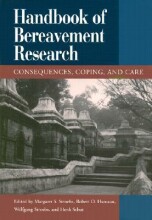Models of Coping with Bereavement: A Review
22 important questions on Models of Coping with Bereavement: A Review
3 categories of coping processes
2) general theories of grief
3) models of coping specific to bereavement
Why is it difficult to assess adaptive coping strategies?
sometimes retrospective
often definitions include process and outcome variables
Stress and Trauma Theories
- Higher grades + faster learning
- Never study anything twice
- 100% sure, 100% understanding
Cognitive Stress Theory in Bereavement context
pinpoints the mediating role of cognitive appraisal in adjustment to loss
bereavement would be seen as stressor. Appraisal by the individual determines the extent to which bereavement is considered challenging or stressful.
Useful in bereavement context for few reasons :
- framework for the fine-grained definition of characteristics of the stressor, coping process and related strategies, and outcomes from which cause-effect relationships can be derived.
-bereavement is a global stressor
bereavement involves number of simultaneous ongoing stressors, the model acknowledges the possibility, however details appraisal and coping with one stressor at a time.
Predictions about strategies remain unclear.
Two general types of coping strategies
confrontation-avoidance
Successful outcomes appears to require all coping strategies due to the complex and multi-dimensional nature of grief
Problem focused coping strategy
More appropriate in situations that are changeable
Emotion-focused coping strategy
more appropriate for situations that are unchangeable
Trauma theory 3 independent bodies of research:
2) Emotional disclosure and social sharing
3) assumptive worldviews
Stress response syndrome
describes the normal manifestations of human reactions following traumatic events, which may sometimes increase the intensity and frequency to an extent that can be diagnosed as PTSD.
Horowitz identified the antithetical reaction of intrusion (compulsive re-experiencing of feelings and ideas surrounding the event)-avoidance (signifies a denial process) as distinctive features of traumatic reactions.
Why can a intrusion-avoidance pattern be helpful?
Assumptive world views
fundamental assumptions people hold about themselves, the world and the relation between these two, which normally go unquestioned and unchallenged are shattered by traumatic event (in our case bereavement) Coping is said to involve rebuilding the inner world, to re-establish meaning, to adjust old assumptions or, at least partly, accept new ones. Effective coping from the perspective would be the search for meaning and to integrate the event into broader positively meaningful structures
3 assumptions of assumptive world view
- world is benevolent
- what happens to us makes sense
Bereavement as a psychosocial transition (Parkes)
gradual changes of assumptions is needed, deeply bound as these are with one's internal model of the world
Grief work:
-preoccupation of thoughts of lost person
painful repetitious recollection of the lost experience to accept irrevocability of loss
Rubin's Two-Track Model
2) Attachment to the deceased, describing ways that this becomes transformed and a new still ongoing relationship to the deceased established.
Does not provide analysis of cognitive structures or processes however suggests a dynamic mechanism associated with attachment bond
2 research developments to understand adaptive coping
the extension of analysis beyond the interpersonal to interpersonal perspectives.
Intrapersonal coping models
Model of Incremental Grief
Places individual coping reactions within context of social environment --> outcome poor in cases of asymmetry and incongruence in grief.
Social construction models
- Walters new model of grief
- The meaning reconstruction model
Walter's new model of grief
Four component model (Bonnano and Kaltman)
Considered bereavement in terms of four components- context of loss
- continuum of subjective meaning associated with loss
- changing representations of loss relationship over time
- role of coping and emotion regulation processes
Dual Process Model of Coping with Bereavement
Loss-orientation (consistent with attachment theory and grief work)
Restoration-orientation (consistent with cognitive stress theory)
Both factors are involved in coping pocess and attended to varying degrees
bereaved person will alternate between the 2, but sometimes there will be a "time out"
Why do we need scientific model of coping with bereavement?
- theories to guide the planning of research
- development of assessment instruments
- to answer questions about effective coping to help those who suffer extremely
The question on the page originate from the summary of the following study material:
- A unique study and practice tool
- Never study anything twice again
- Get the grades you hope for
- 100% sure, 100% understanding































